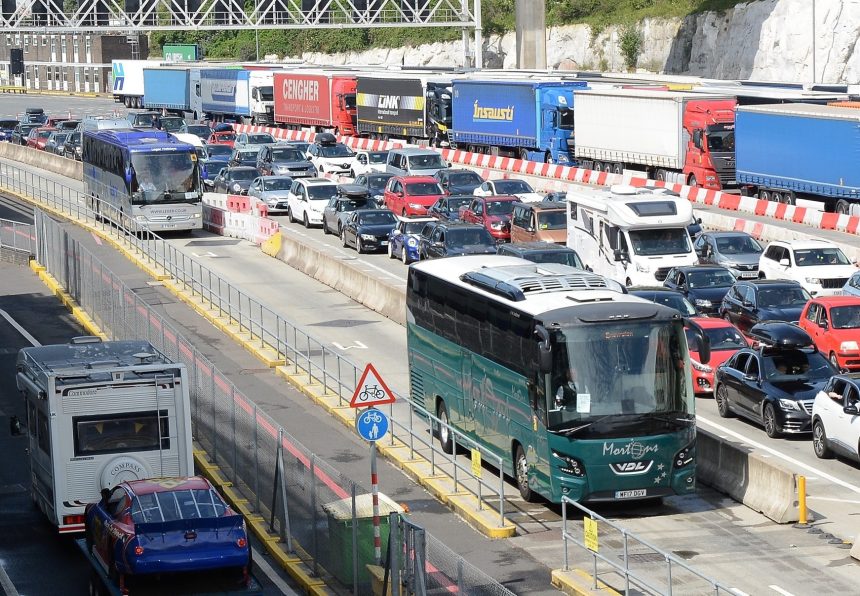The government has pledged £10.5 million towards preparation for the Schengen-area EU Entry/Exit System (EES) at juxtaposed border points including the Port of Dover ahead of that scheme’s commencement on 10 November.
Such support has previously been called for by bodies representing the coach industry, where concerns among operators that venture abroad centre on the delays at Dover that EES may cause. It requires collection of biometric data from ‘third country’ citizens.
The £10.5 million of government money will be split equally between the Port of Dover, Eurotunnel, and Eurostar. It will go towards installation of the necessary EES technology and the completion of other preparations for the digital border rollout.
At Dover, the funding will be used to expedite work on the Granville Dock project, where the Western Docks marina will be filled in and space there used for EES processing. Other locations will gain additional kiosks and see support for recruitment and training of additional staff and “rigorous testing.”
In announcing the money, the government acknowledges that it has been made available “to reduce the risk of queuing and disruption.” It adds that the recipients “have been making significant progress in their EES planning and are now on track for a smooth transition ahead of implementation later this year.”
Port of Dover Chief Operating Officer Emma Ward has described the funding as “a welcome step towards the significant investments we are making to support government plans to prepare for the introduction of the EU EES.”
Ms Ward adds that Dover is “doing all that we can to be ready with the facilities that will be used by French border officials operating the new system while we continue to work with the UK government to deliver more seamless travel between the UK and the EU.”
Future of Roads Minister Lilian Greenwood says that since the general election, the new government has “been reviewing plans and closely supporting ports to make sure that they have the right processes in place so that EES registration can be smooth and queue times kept to a minimum.”



























